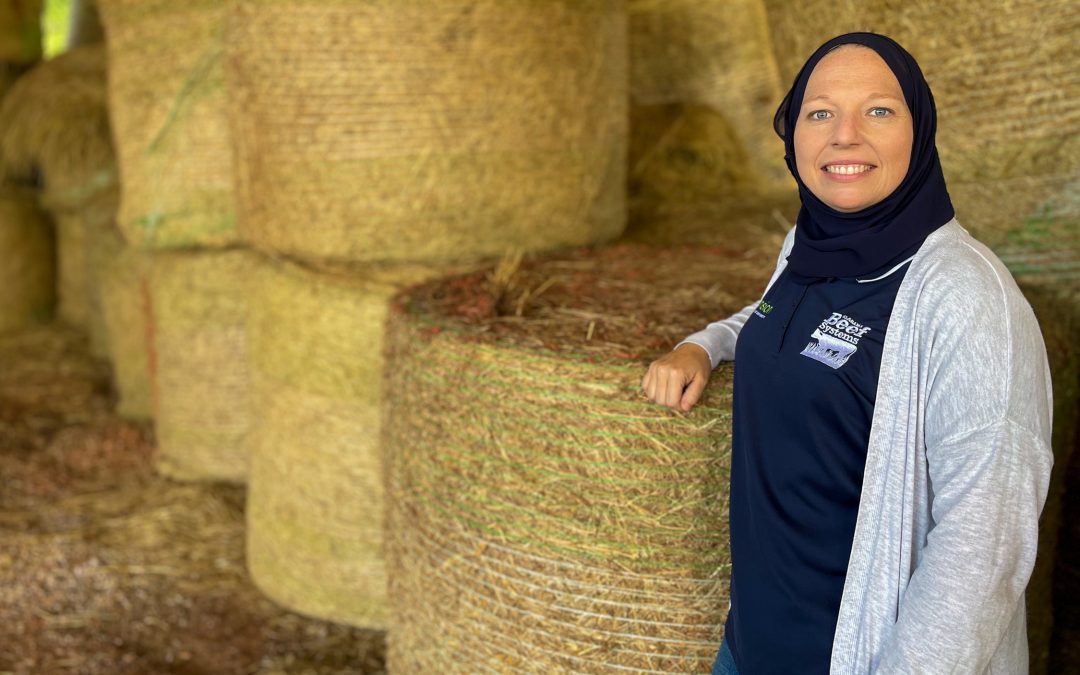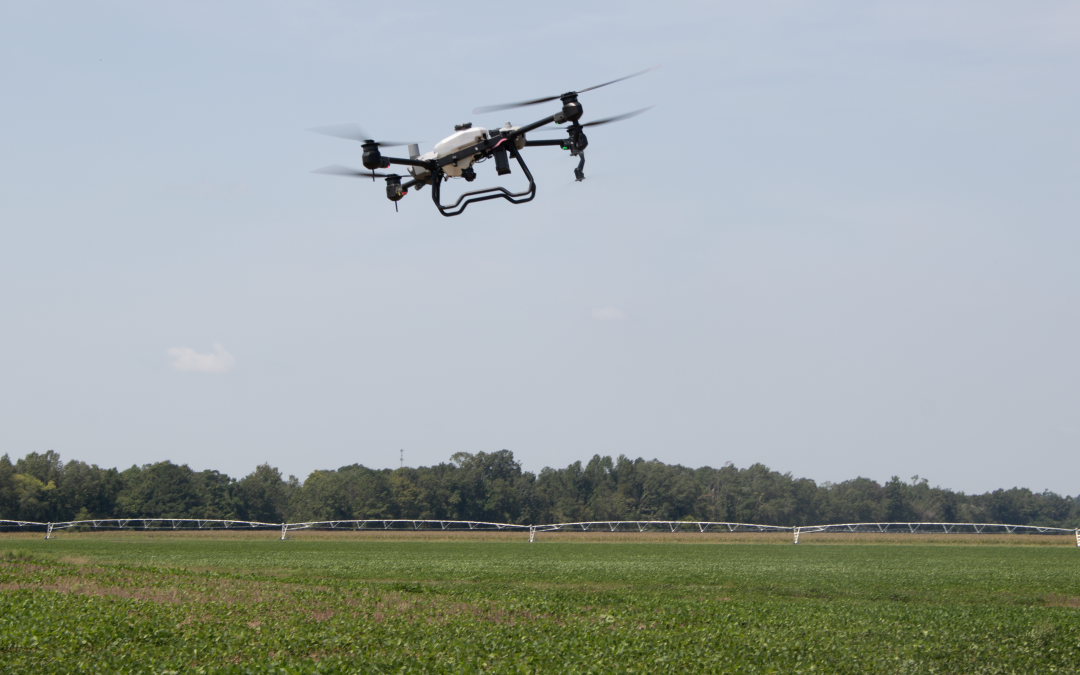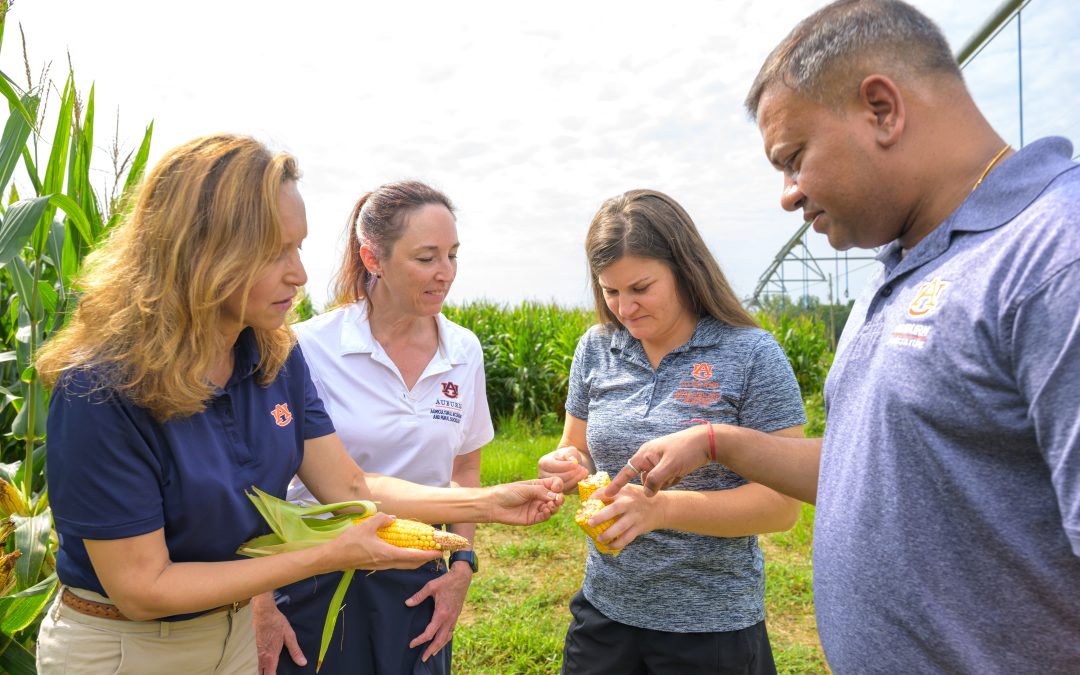by DAVID REARDON

Genetically modified crops, such as Bt cotton, have the potential to change the world for the better, says David Weaver, longtime professor and researcher in the Department of Crop, Soil and Environmental Sciences.
David Weaver, one of the best known and longest tenured professors in Auburn’s College of Agriculture, is practically a walking encyclopedia of agronomy. This is obvious to the students and colleagues who have had the opportunity to ask him a complicated question and receive a crystal-clear answer without a split second of hesitation.
Similarly obvious to students and colleagues is Weaver’s firmly held belief in the power of genetically modified organisms, or GMOs, to change the world for the better. When called “pro-GMO,” Weaver quickly responds that he is “pro-science.”
This isn’t a position universal to the general populace, or even the College of Agriculture. “I do have a few admirers who slip me notes under my door,” he quips, “Anonymously, of course.”
He produces one such note and reads the first line: “Research shows organic farming is healthier for you.” He shakes his head, half laughing, half in disbelief. “What does that even mean? I think they mean ‘organic food is healthier for you.’ And that’s still incorrect.”
It would be a controversial stance in the political world, but if anyone has the academic record and experience to back up such a claim, it is Weaver. Raised on a poultry farm in Braselton, Ga., to parents with a cotton farming background, he has been around agriculture his entire life.
An agronomy major at the University of Georgia, he later earned his master’s degree from the same school and his PhD from Purdue. He has been conducting research on cotton and soybean crop improvement for 35 years now and has been a professor at Auburn University for all 35 of them. Weaver plans to retire at the end of August.
Lamenting a misinformed public
One must be prepared for steely frustration to tint Weaver’s normally crisp and friendly Southern tone if the subject of restrictions on GMOs is brought up around him. What frustrates him the most aren’t the pseudoscience blogs run by laymen that call GMOs “Frankenfood” and cite no sources –– though these are certainly subject to his ire –– but instead the harm he says is done worldwide when the public is misinformed.
“People just go to Wal-Mart or Guthrie’s or McDonald’s for a $4 meal. They don’t understand that it takes research to keep the line moving,” he says. “When the public doesn’t understand, they don’t care, and it’s easy for the government to cut funding to research projects.”
This attitude, he says, has dangerous consequences. One example is the tragic case of “golden rice,” a genetically modified crop imbued with Vitamin A, an invention intended to solve Vitamin A deficiency in parts of the world where pills are highly distrusted.
Vitamin A deficiency results in the blindness of millions of people, and this could be solved if the new crop was widely cultivated and consumed. Instead, many governments in affected areas have banned the growth and even the study of the crop.
A basic failure to understand what exactly a GMO is lies at the root of the problem, according to Weaver. Again, he points to misinformation and lack of education as the real enemy, not some shadowy, evil force intent on starving millions, and he is always happy to explain the process to those unfortunate students who haven’t taken his classes.
Basically, the DNA for a specific protein that kills a specific pest or overproduces a specific enzyme is inserted into a safe-to-use bacterium that has had the DNA of the disease-causing aspect of the bacterium removed, he explains. The new DNA is inserted into the nucleus of the plant via the bacterium, and incorporated into the DNA of the plant itself. The bacterium shell is no more than a carrier.
One example of this is Bt cotton. Bt is a protein that is toxic only to larvae of certain pests. It is not a problem for other insects, such as bumblebees, and is not at all relevant to humans as far as consumption is concerned. When Bt DNA is inserted into the cotton DNA, the plant synthesizes the protein and kills the larvae of the targeted pests that try to feast on it.
Fields of Bt cotton do not require pesticides that would otherwise be necessary to kill bollworms. If pesticides are unavailable or ineffective in a certain region, substituting with a GMO crop can lead to enormous increases in crop yields. The same is true of plants that are modified to resist other types of insects, diseases, and even heat.
Weaver bristles at the idea that this is in any way unsafe. “Nothing has ever been shown to prove organic food is better for you. Nothing. People will tell you to your face that it is better for you, but there is no evidence. At all.” Contrarily, he cites 500 experiments done over the past 25 years, every one of which supported the hypothesis that GMOs are at least as safe as conventional food.
“GMOs are the most researched topic in agricultural history, and [they’ve found] nothing. They have not come up with anything. After 500 studies supporting the hypothesis, it starts to become accepted fact in the scientific community.” Instead, Weaver contends, it is organic food that is a potential risk. This is difficult to prove scientifically, but one can infer that some of the pesticides that are allowed in organic food production could present risks.
Tide beginning to turn
One positive prediction Weaver makes is that the tide is starting to turn a bit. When it does, he hopes that greater acceptance of technology will be able to put a dent in child malnourishment in places like Africa, where health statistics are generally disappointing and GMOs are largely banned entirely.
He likens that ban to a centuries-old folly: when Galileo was convicted of heresy by the Roman Catholic Church for claiming that the earth revolves around the sun.
“Whenever there’s new information out there, there’s backlash against it,” he says. A powerful political example is that of former Venezuelan President Hugo Chavez, who refused in 2004 to import transgenic seeds, despite the wealth of research being done in continental neighbors Argentina and Brazil. Weaver recounts the story with a mix of incredulous disappointment and laughter.
As quickly as it comes, the fire and frustration in Weaver’s voice fades back into a friendliness befitting a Southern gentleman. Just a few minutes after emphatically repeating “No. No. Never,” when asked if he had ever had doubts about GMO safety, he is back to shooting the breeze in his untarnished and articulate drawl.
An hour has passed, but he doesn’t lament it as lost time. There’s a reason, then, that a scientist intent on improving crops and raging against perceived heathenistic agriculture practices has ended up in an office at Auburn University, an advocate for his field in a place where his influence can be felt so immediately.
David Reardon is a senior at Auburn University majoring in Agricultural Communications.




